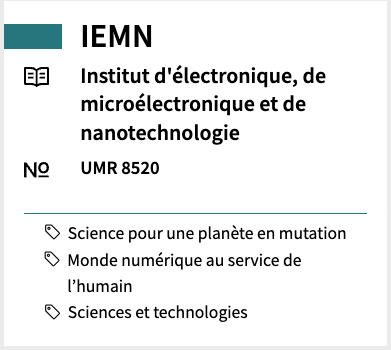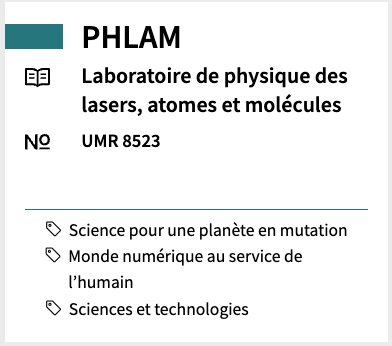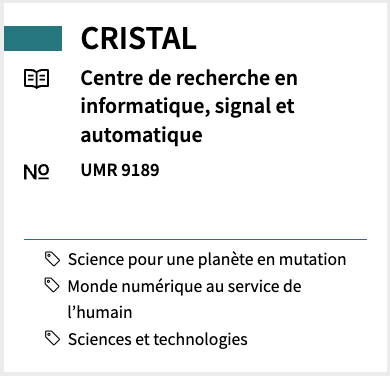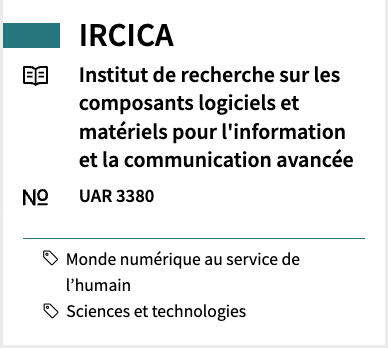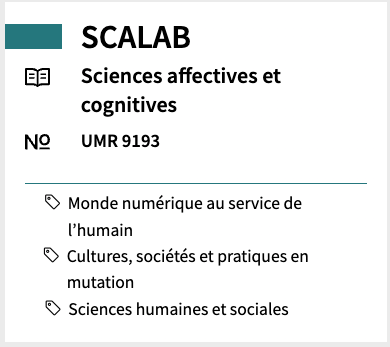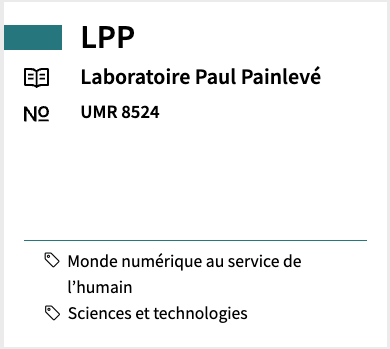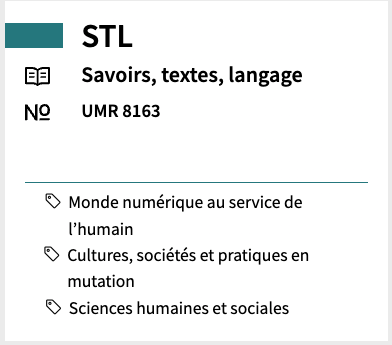Scientific context
Students of the Graduate Program "Information and Knowledge Society" will be key players in the digital world of tomorrow. Computer scientists and electronics engineers will build the Internet of Things, addressing both its software and hardware aspects. Computer scientists and mathematicians will design data processing algorithms and artificial intelligence to extract information from vast amounts of data. Physicists and electronics engineers will develop fiber optic networks and mobile telephony beyond their current limits, while inventing disruptive technologies such as quantum information. Computer scientists, mathematicians, and physicists will invent new concepts and analyze complex behaviors that can emerge in various systems, thanks in part to scientific computing. The way living organisms produce and transmit biological information will inspire bio-inspired communications. Specialists in cognitive and affective sciences will contribute to adapting these technologies to humans and making the dialogue between humans and machines natural. Philosophers will give meaning to the fundamental questions that will inevitably arise for humans immersed in this digital world. To acquire these expertise, students in the IKS graduate program can rely on a set of top-level research units and state-of-the-art platforms.
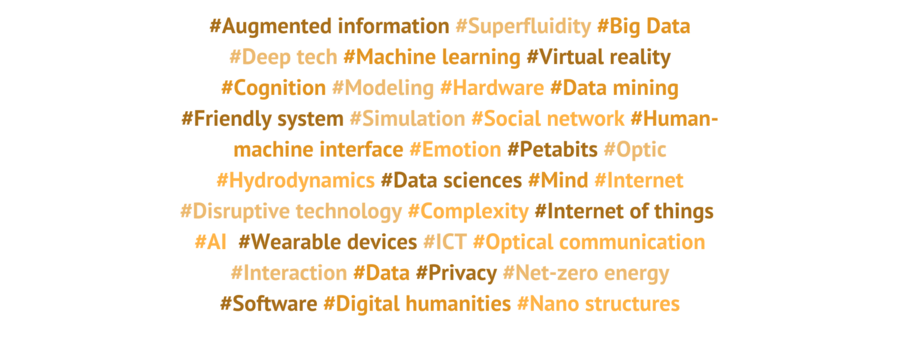
Challenges
The Graduate Programme "Information and Knowledge Society" is aligned with the scientific themes of the "Human friendly digital world" cluster of excellence to which it is attached, according to three challenges:

Humanise
digital Society

Master complexity
with innovative
conceptual tools

Design disruptive
technology for
friendly devices
Key numbers
Research Units
Permanent Researchers
These challenges have already been taken up by the 7 research units and nearly 600 reserchers in Lille, which are internationally recognised for their excellence in these fields and have won several research projects.
Research topics
Autonomous vehicles: automation, real-time algorithms, electronics
Machine-human interface, virtual reality: cognitive sciences, computer science, artificial intelligence, mathematics
Quantum information & cryptography: physics, mathematics, electronics, computer science
Edge computing, intelligent sensors in the field, connected things: computer science, electronics (neuromorphic architectures)
Innovative information processing : systems biology, computer science, statistical physics, mathematics
Mobile network infrastructures: electronics, fibre optics, physics, mathematics
Data science, artificial intelligence: computer science, mathematics, statistical physics
and also : scientific computing, philosophy,...
State-of-the-art technological platforms
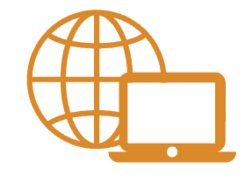
As a student of the Graduate Programme, you will have access to top-level technology platforms, both during your training and during your internships or doctoral project. Some of these platforms have few equivalents in France or, in some cases, anywhere in the world. Working on theses platforms, you will acquire specific and valuable know-how.
Some examples of platforms associated with the graduate program Information and Knowledge Society are:
- IEMN's nanotechnology center, one of five in the French RENATER network
- PhLAM's fiber optics manufacturing facility, the most complete of France's three such academic facilities.
- IrDIVE, together with PIRVI, are virtual reality platforms that enable researchers to explore different aspects of human-machine interaction.
- Grid'5000 gives you access to high-performance computing on a range of nodes distributed across France.
- PRETIL is a comprehensive robotics equipment platform.
- Future Internet of Things (FIT) is a national network of facilities dedicated to connected objects, with a platform in Lille.
Internships in labs
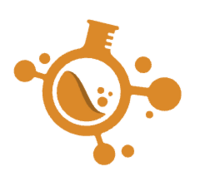
As a student of the Graduate Programme, you will have the opportunity to discover research through an internship or doctoral thesis, in one of the research units associated with the Graduate Programme (see list below) or elsewhere in the world. In collaboration with established researchers, you will carry out a project that will create new knowledge, and you will become an expert in your field of work. Along the way, you will acquire both the scientific and human skills that are in demand in both the academic and socio-professional worlds, at a time when scientific excellence is the key to competitiveness.
